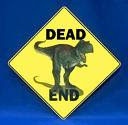saparks.jpg)
I got to wondering who my cat's ancestors are and where they lived, so I did a little research. I found this information in
Scientific American's June issue article entitled' The Taming of the Cat'.
Cats are the most popular pet in the world. One out of every three American households has at least one cat. There are over 600 hundred million domestic cats worldwide. If you have to ask why, you don't keep one. But how did cats become domestic and when?
Until recently it was believed the domestication of cats started with the ancient Egyptians 3600 years ago. Genetics and archaeological evidence now suggest a more distant time.
In 2000, Carlos Driscoll, University of Oxford, compared DNA samples of 979 wildcats and domestic cats. Samples of the wildcat
Felis sylvestris lybica (Photo), found in Israel, the United Arab Emirates and Saudi Arabia, and the domestic cat were 'virtually indistinguishable', strongly suggesting a Middle Eastern origin for the domestic cat.
Further strengthening the domestic cat's more distant origins are recent archaeological finds of a human and domestic cat buried together on the Mediterranean
island of Cyprus dating back 9600 years. This find suggests that cats were living with humans and being carried by people from place to place over nine centuries ago.
But how did the wildcat, F.s. libica, come to live with humans?
Archaeologists digging in Israel discovered the remains of house mice in storage areas for grain dating back at least 10,000 years. It is thought that wildcats were attracted by the mice and perhaps food scraps in garbage dumps near human settlements. Over the years the boldest of the cats survived at a higher rate because of the easier pickings associated with humans. The more domesticated they became the greater their odds for survival. Those of you on a cat's personal staff have experience as to why.
Over the centuries wherever we have gone we have brought our cats with us. The house cat eventually found its way to America about 500 years ago finishing a 10,000 year migration to the New World. One of their descendants can usually be found occupying the most comfortable spot in our house.















saparks.jpg)



































